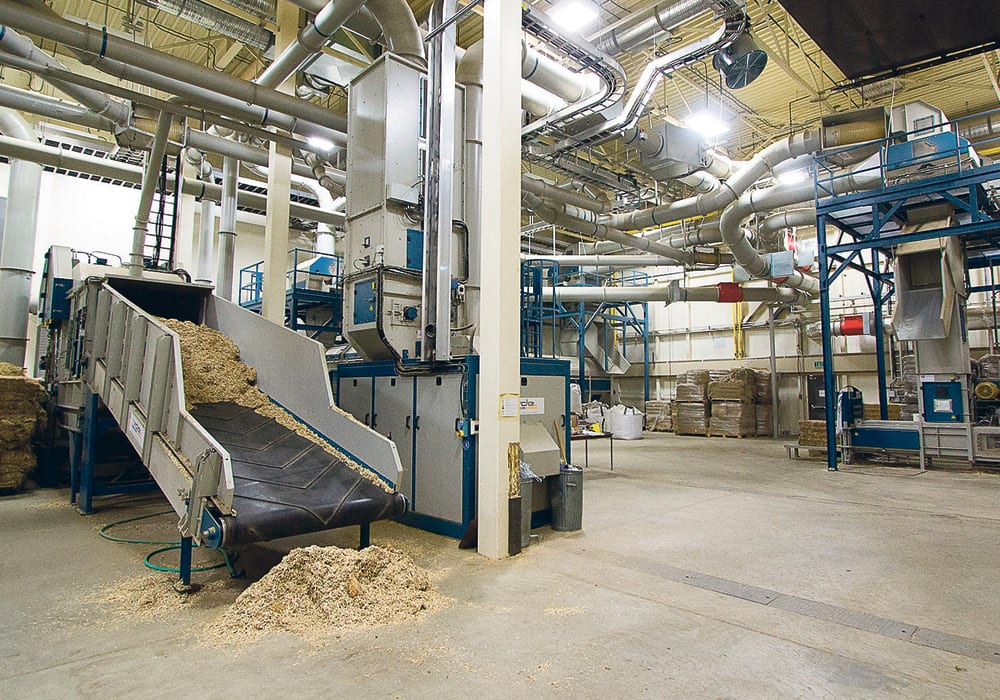
Industrial Hemp and Its Benefits
Industrial hemp, also known as hemp, is a versatile crop that has been used for centuries for various purposes, including clothing, paper, food, and construction materials. Hemp is a strain of the cannabis plant that contains very low levels of the psychoactive compound THC, which is responsible for the “high” associated with marijuana. Hemp is a wondercrop that can be grown sustainably, without the need for pesticides or fertilizers, and has a range of environmental, economic, and health benefits.
The benefits of hemp are well-documented, and many countries have legalized hemp farming and production in recent years. Hemp has the potential to revolutionize various industries, from textiles and construction to food and medicine. In this article, we will discuss the potential of Hemp Nation One, a sustainable community of hemp farmers, entrepreneurs, and consumers, to promote the use of hemp and build a sustainable future.
The Promise of Hemp Nation One
Hemp Nation One is a community of hemp enthusiasts who are committed to promoting the use of hemp and building a sustainable future. The community aims to create a network of hemp farmers, entrepreneurs, and consumers who can work together to promote sustainable agriculture, create jobs and economic growth, and reduce the environmental impact of farming.
The community is based on the principles of sustainability, social responsibility, and innovation. The members of Hemp Nation One are committed to promoting sustainable farming practices, reducing waste, and promoting fair trade and ethical business practices. The community also aims to promote innovation in the field of hemp farming and production, by supporting research and development of new products and technologies.
The Role of Sustainable Agriculture
Sustainable agriculture is a key principle of Hemp Nation One. The community believes in promoting farming practices that are environmentally sustainable, socially responsible, and economically viable. This includes the use of organic and regenerative farming practices, which avoid the use of pesticides and fertilizers and promote soil health and biodiversity.
Hemp is an ideal crop for sustainable agriculture, as it can be grown without the need for pesticides or fertilizers. Hemp is also a fast-growing crop that produces high yields, making it an ideal crop for small-scale farmers. Hemp can also be used as a rotational crop, which can help to improve soil health and prevent soil erosion.
Building a Strong Community
Building a strong community is a key priority for Hemp Nation One. The community aims to create a network of farmers, entrepreneurs, and consumers who can work together to promote the use of hemp and build a sustainable future. This includes creating opportunities for networking, collaboration, and knowledge sharing.
The community also aims to create a sense of belonging and community among its members. This includes hosting events, workshops, and other activities that promote social interaction and community building. The community also encourages members to volunteer and get involved in local initiatives that promote sustainability and social responsibility.
Creating Jobs and Economic Growth
Hemp farming and production have the potential to create jobs and economic growth in rural areas. Hemp is a fast-growing crop that can be grown on small plots of land, making it an ideal crop for small-scale farmers. Hemp can also be used to produce a range of products, including textiles, paper, and food, which can create employment and economic opportunities in local communities.
Hemp production can also have a positive impact on the environment, by reducing the need for pesticides and fertilizers, and promoting soil health and biodiversity. This can help to create a more sustainable and resilient agricultural system, which can support long-term economic growth and development.
The Environmental Impact of Hemp Farming
Hemp farming has a range of environmental benefits, including reducing the need for pesticides and fertilizers, promoting soil health, and reducing soil erosion. Hemp is also a fast-growing crop that produces high yields, which can help to reduce pressure on land use and deforestation.
Hemp production can also have a positive impact on the climate, by sequestering carbon in the soil and reducing greenhouse gas emissions. Hemp can also be used as a biofuel, which can reduce reliance on fossil fuels and promote renewable energy.
Hemp as a Versatile Crop
Hemp is a versatile crop that can be used to produce a range of products, including textiles, paper, food, and construction materials. Hemp fibers are strong and durable, making them an ideal material for clothing and textiles. Hemp seeds are also highly nutritious and can be used to produce a range of food products, including hemp milk, hemp protein powder, and hemp oil.
Hemp can also be used to produce construction materials, such as hempcrete, which is a sustainable alternative to concrete. Hempcrete is lightweight, breathable, and has excellent insulation properties, making it an ideal material for building homes and other structures.
Addressing the Stigma Surrounding Hemp
Hemp has long been stigmatized due to its association with marijuana. However, hemp is a distinct strain of the cannabis plant that contains very low levels of THC, the psychoactive compound found in marijuana. Hemp has a range of benefits and can be grown sustainably, without the need for pesticides or fertilizers.
Hemp Nation One aims to promote the use of hemp and address the stigma surrounding the crop. The community believes that education and awareness are key to promoting the use of hemp and reducing the stigma associated with the crop.
Challenges and Solutions for Hemp Nation One
Hemp Nation One faces a range of challenges, including regulatory barriers, lack of infrastructure, and limited consumer awareness. However, the community is committed to overcoming these challenges by promoting sustainable farming practices, building a strong community, and promoting public awareness campaigns.
The community is also committed to supporting research and development of new products and technologies that can help to promote the use of hemp and create new economic opportunities.
Hemp and Health: The Plant’s Medicinal Properties
Hemp has a range of medicinal properties that have been recognized for centuries. Hemp contains a range of cannabinoids, including CBD, which has been shown to have a range of health benefits, including reducing anxiety, promoting sleep, and reducing pain and inflammation.
Hemp can also be used to produce a range of other medicinal products, including hemp oil and hemp tea. These products are becoming increasingly popular as more people seek natural alternatives to conventional medicine.
Promoting Hemp Nation One: Public Awareness Campaigns
Public awareness campaigns are a key part of Hemp Nation One’s strategy to promote the use of hemp and reduce the stigma associated with the crop. The community believes that education and awareness are key to promoting the use of hemp and building a sustainable future.
The community is committed to promoting public awareness campaigns that educate the public about the benefits of hemp and how it can be used to promote sustainability and social responsibility. This includes social media campaigns, educational materials, and public events.
The Future of Hemp Nation One
Hemp Nation One has the potential to revolutionize the way we think about farming, production, and consumption. The community is committed to promoting sustainable agriculture, reducing waste, and promoting fair trade and ethical business practices. By building a strong community of hemp farmers, entrepreneurs, and consumers, the community aims to create a network of people who can work together to promote the use of hemp and build a sustainable future.
Hemp has the potential to create jobs and economic growth, reduce the environmental impact of farming, and promote health and wellbeing. As more people become aware of the benefits of hemp, we can expect to see an increase in demand for hemp products and a shift towards more sustainable and ethical farming practices.
Hemp Nation One is poised to play a key role in this shift, by promoting the use of hemp and building a sustainable community of farmers, entrepreneurs, and consumers. The future of hemp is bright, and Hemp Nation One is leading the way towards a more sustainable and equitable future.



